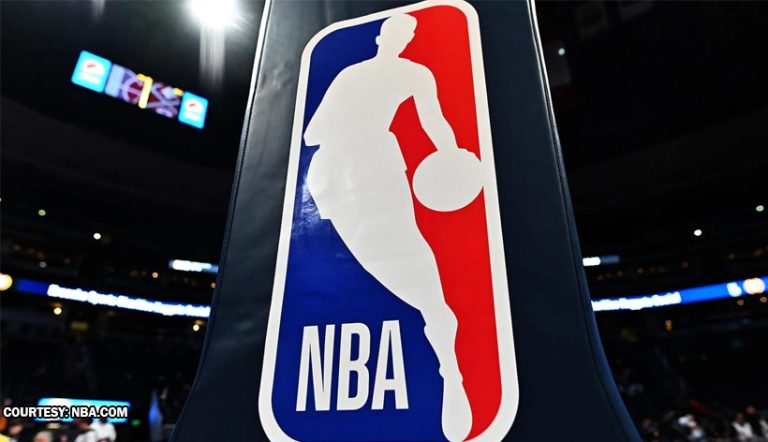Expanding Dialogues on Sports Prediction Markets: The NBA Speaks Out
The conversation around sports prediction markets has gained new momentum, particularly with the NBA’s recent involvement.
The National Basketball Association (NBA) has become the latest major sports league in the United States to address the Commodity Futures Trading Commission (CFTC) on this pressing issue. This follows Major League Baseball’s prior comments submitted earlier in March.
In a letter from NBA Vice President Alexandra Roth, the league raises significant concerns regarding the potential risks to integrity posed by prediction markets. Operated on federally approved platforms like Kalshi, Robinhood, and Crypto.com, these markets offer futures contracts based on sports outcomes. Critics argue that these activities skirt existing state gambling regulations, although several courts don’t fully agree.
Kalshi has previously succeeded in overturning legal challenges from the CFTC in federal court last fall, allowing it to provide election betting services. This court victory has allowed the platform and others to venture into the realm of sports prediction, resulting in cease-and-desist orders from states like Nevada, New Jersey, and Maryland.
Pursuing legal action in response, Kalshi has achieved preliminary injunctions in two of those states, amid heightened scrutiny. A roundtable discussion on the issue was slated for April 30 but was poorly organized and ultimately canceled, leaving many unanswered questions.
Despite these developments, submissions to the CFTC continue to pour in—coming from a diverse array of stakeholders, including tribal groups, advocacy organizations, state regulators, and now professional sports leagues.
A Historical Perspective on NBA and Sports Betting
The NBA has maintained a unique position in the evolving landscape of sports betting, particularly under Commissioner Adam Silver’s leadership. In an influential 2014 op-ed for The New York Times, Silver advocated for federally legal sports betting, a stance taken four years prior to the Supreme Court’s repealing of PASPA, when many leagues were hesitant to engage with the issue.
Silver’s argument highlighted that the unregulated nature of sports betting encourages illicit activities, thereby jeopardizing both consumer interests and the integrity of the league. A notable incident involving former NBA referee Tim Donaghy, who faced legal action for betting on games he officiated, further underscores these concerns.
As the landscape shifts almost a decade post-PASPA, the NBA is once again voicing integrity concerns, this time about the rise of prediction markets.
“Ensuring the integrity of NBA basketball and maintaining public trust in our league is paramount,” Roth articulated in her correspondence to the CFTC. This guiding principle remains central as the agency explores these emerging market platforms.
The Speed of Change in Prediction Markets
The evolution of prediction markets has been rapid and noteworthy. Initial offerings mainly featured long-term futures but have quickly expanded to single-game contracts, which have become the most traded options.
Recent trading volumes reveal a striking trend: NBA and MLB contracts outstrip other non-sports markets significantly. This rapid growth is largely attributable to the regulatory environment; unlike traditional sports betting where state approval is mandatory for new bet types, federally regulated markets can self-certify and launch new contracts with limited oversight.
Roth pointed out that this self-certification approach poses a clear disparity, allowing exchanges to introduce diverse sports prediction markets quickly, while traditional betting operators face more rigorous regulations.
Special Concerns Around Player Proposition Bets
One of the NBA’s keenest concerns lies with player prop bets within prediction markets. Recently, the league dealt with a scandal involving a player who manipulated game outcomes to benefit from prop wagers on his performance. This incident served as a stark example of the vulnerabilities inherent in the current betting landscape.
The repercussions were significant, leading to lifelong bans and multiple investigations that raised alarms across the league. Such actions highlight the critical importance of integrity monitoring within betting frameworks.
However, the NBA’s letter to the CFTC noted a glaring absence of regulatory requirements for exchanges to report suspicious trading behaviors. Roth indicated that the lack of oversight could exacerbate integrity risks, particularly as the league lacks effective mechanisms to monitor these activities.
With powerful data partnerships in place, such as the one with Sportradar, the NBA aims to enhance monitoring capabilities. Yet, the recent partnership between leading integrity monitor IC360 and Kalshi offers a complex mix of opportunities and potential conflicts within integrity monitoring firms, raising further questions about their role in the evolving sports betting landscape.
The dialogue surrounding sports prediction markets is far from settled, and with leagues like the NBA stepping into the conversation, the quest for integrity in sports betting continues to evolve.
